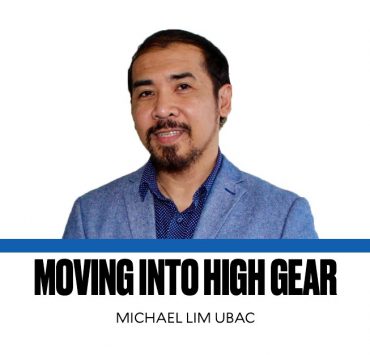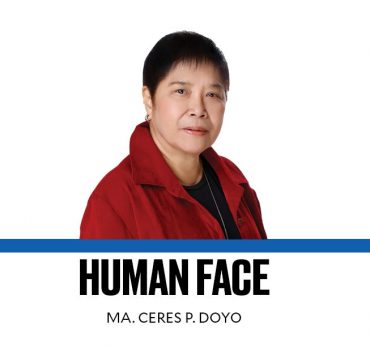Tobacco warnings go up in smoke

It’s a picture that paints a thousand doubts on the Department of Health’s (DOH) vaunted commitment to promote the country’s health.
Last week, Health Secretary Ted Herbosa drew sharp criticism from public health advocates when he and several government representatives posed with Philip Morris executives during the turnover of mobile clinics donated by the tobacco company in Malacañang. The event was hosted by First Lady Liza Marcos.
Not surprisingly, Malacañang saw “nothing wrong” with the DOH’s participation in the event, choosing to go technical instead of parsing the message telegraphed by the photo. “Do we have any proof that … Herbosa was the one who accepted the donation from the tobacco companies?” Palace Press Officer Undersecretary Claire Castro asked, adding that the donation was made to the Social Welfare department and not the DOH. “If (Herbosa) had a photo op, it doesn’t mean that he already violated the law,” she said.
Oh, but he did, according to the Southeast Asia Tobacco Control Alliance (Seatca), a multi-sectoral nongovernment group assisting Asean countries to effectively implement the World Health Organization’s (WHO) Framework Convention on Tobacco Control.
The treaty, which was adopted in 2003 by the WHO and ratified by 180 member countries, mandates that governments safeguard public health policies from the influence of the tobacco industry.
Conflict of interest
Ratified by the Philippines in 2005, and affirmed as legally binding by the Supreme Court, it became the basis of the Civil Service Commission-Department of Health Joint Memorandum Circular 2010-01 (JMC), requiring public officials to engage with the tobacco industry only when necessary for industry regulation and supervision. The JMC prohibits government officials from partnering with or providing or accepting benefits from the tobacco industry to prevent conflict of interest and maintain policy integrity.
Another law, Republic Act No. 9211, also known as the Tobacco Regulation Act of 2003, similarly regulates tobacco advertising, promotion and sponsorship, among other restrictions.
As noted by Dr. Ulysses Dorotheo, Seatca executive director, “[I]t is the duty of the Secretary of Health, the Secretary of Social Welfare, and the whole government to protect public health from health-harming industries and not to partner with them.”
He also pointed out the “hypocrisy” of the tobacco industry in donating mobile clinics while causing deaths and diseases. Tobacco “kills more than 8 million people, including 90,000 Filipinos, every year,” Dorotheo added.
And indeed, tobacco has been found to pose significant health risks due to its harmful chemicals and addictive nature that led to various health complications and potentially fatal ailments such as cancer, heart disease, chronic obstructive pulmonary disease, and lung disease.
Public relations strategies
According to the Global Action to End Smoking, a US-based nonprofit that aims to end combustible tobacco use, it was estimated in 2021 that tobacco was the fourth highest risk factor driving the most deaths and disability combined in the Philippines. It estimated the economic cost of smoking-attributable diseases in the country at P44.6 billion in 2016.
Several former senior government officials similarly exhorted state agencies to reject donations from tobacco companies that, they said, could “interfere” with the country’s health policies.
“The government, by taking tobacco money, allows itself to be manipulated and supports the manipulation of the public, specifically the youth who are the target of the tobacco industry as their replacement users,” warned former DOH secretary Dr. Esperanza Cabral.
Former health secretary Francisco Duque III also urged government to have “no part” in tobacco companies’ “public relations strategies to enhance their image and promote their interests. The interests of public health and the tobacco industry are so fundamentally irreconcilable that it is imperative to protect our policymakers and government institutions alike from conflicts of interest so that they can freely decide on what is best for the health of Filipinos.”
Lapse in judgment
Health reform advocate Tony Leachon meanwhile spared no quarter in calling out Herbosa on the controversial photo: “This is not just a lapse in judgment. This is a deliberate act that spits in the face of every Filipino who has lost [loved ones] to tobacco-related illnesses … This is not about politics. This is about principles.”
More pointedly, Leachon pointed out how the incident has tainted the DOH’s credibility. “How can we expect Filipinos to trust in the [agency’s] public health initiatives when its leader has shown us that ethics can be discarded for convenience?” he asked.
While resigning might not be a feasible option as yet, Herbosa would do well to mull over Leachon’s words about leadership being about “moral ascendancy” and “making choices that may be difficult but are right.”
Will the DOH official now do what’s right? A public apology would be a good start.

















